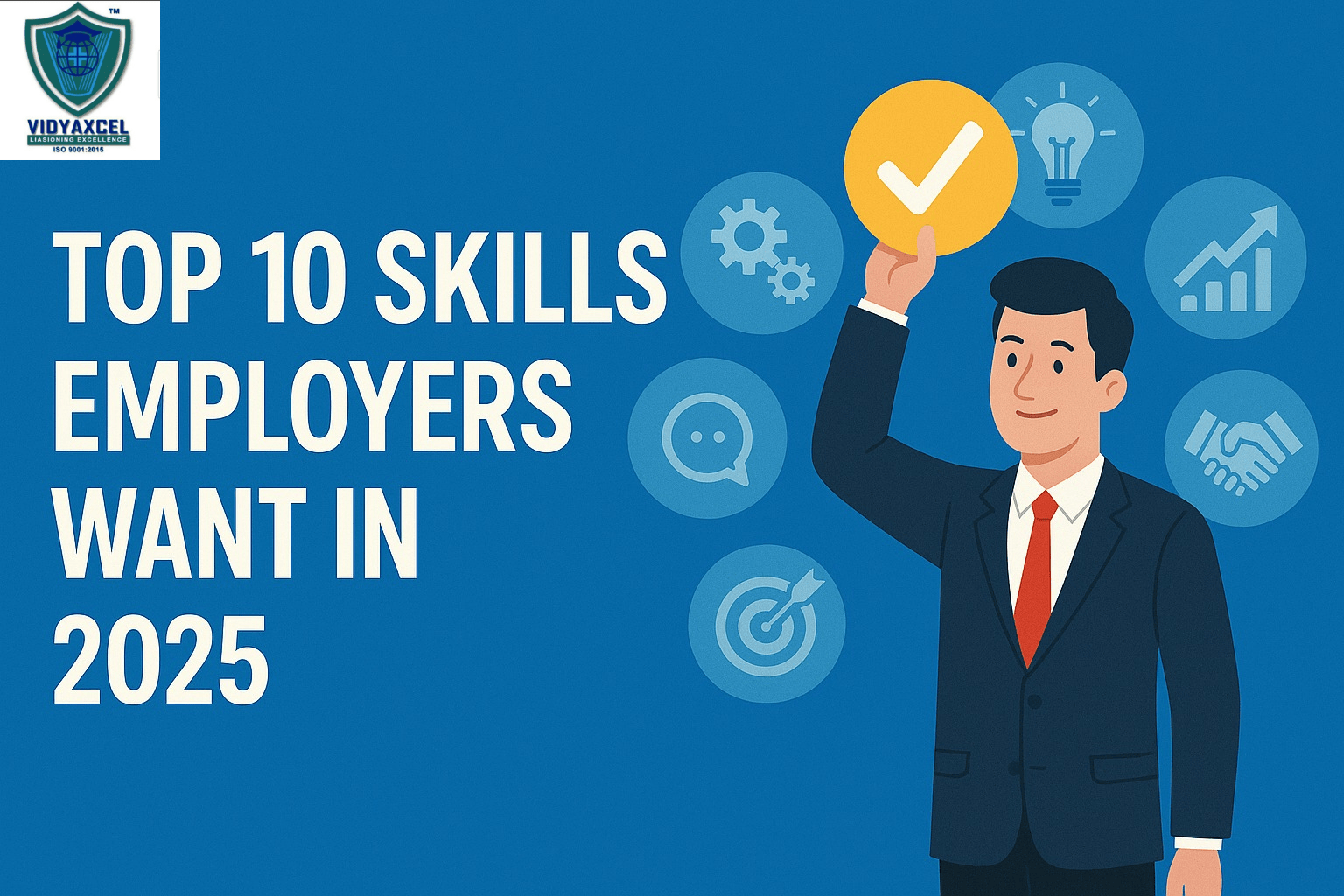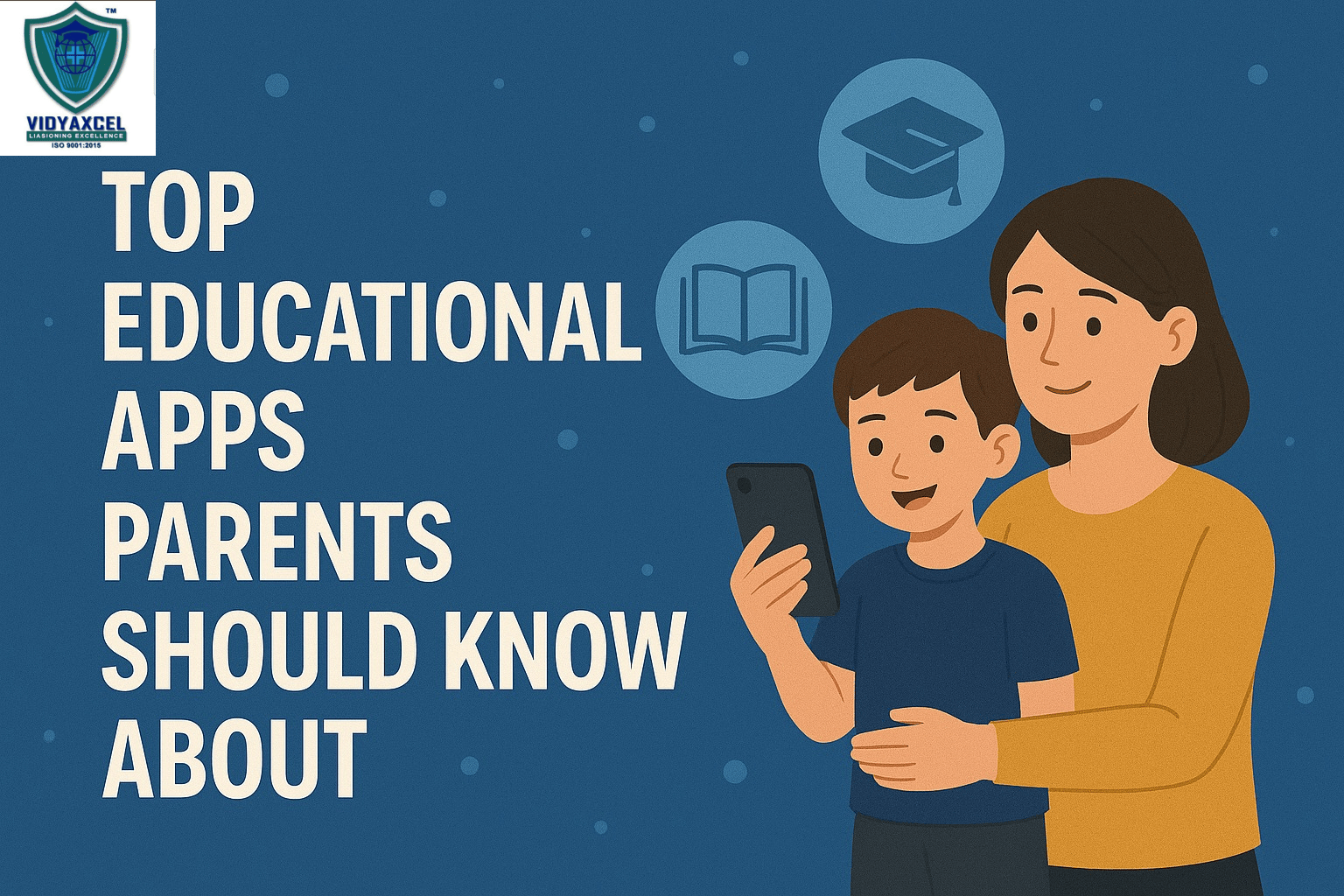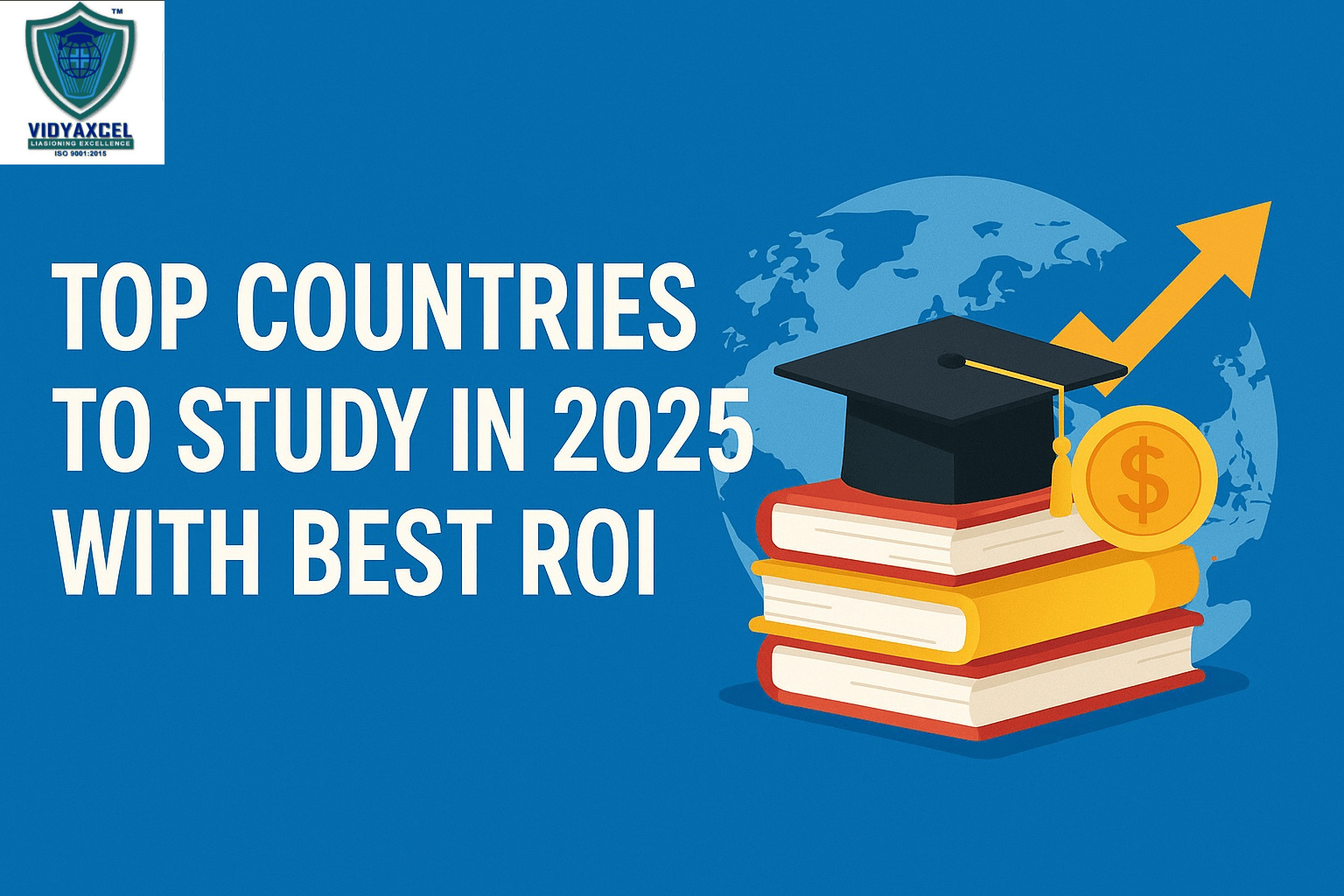Blog Details

12Jul
Top 10 Skills Employers Want in 2025
As the global economy evolves at an unprecedented pace, the skills employers seek are also changing rapidly. Technological advancements, hybrid work models, AI integration, and sustainability demands have reshaped industries across the board. In 2025, possessing a degree alone won't suffice—employers are increasingly looking for a dynamic blend of technical expertise, soft skills, and adaptability. This detailed guide explores the top 10 skills that employers are prioritizing in 2025. These are skills that not only help individuals secure employment but also future-proof their careers in a world where job roles are continuously evolving.
1. Digital Literacy and Tech Savviness
Overview: Understanding and effectively using digital tools is now a core requirement across all industries. Digital literacy goes beyond basic computer knowledge to include familiarity with AI tools, data management platforms, cloud computing, and digital communication systems.
Why Employers Value It:
-
Enables quick adaptation to digital workflows.
-
Reduces the need for extended tech training.
-
Essential for remote or hybrid work environments.
How to Acquire:
-
Online certifications in platforms like Google Workspace, Microsoft 365.Courses in cloud computing, AI tools, and data visualization software.
2. Critical Thinking and Problem Solving
Overview: In a world of automation, what sets humans apart is the ability to think critically, identify problems, evaluate solutions, and make data-driven decisions.
Why Employers Value It:
-
Enhances innovation and creativity.
-
Boosts strategic decision-making.
-
Reduces risks through foresight and analysis.
How to Acquire:
-
Practice logic puzzles and real-life case studies.
-
Engage in group discussions and debates.
3. Emotional Intelligence (EQ)
Overview: EQ refers to the ability to understand, manage, and influence one’s emotions and those of others. It has become vital for leadership, teamwork, and client interactions.
Why Employers Value It:
-
Builds positive workplace culture.
-
Aids in conflict resolution.
-
Enhances teamwork and collaboration.
How to Acquire:
-
Self-assessment tools and emotional regulation exercises.
-
Training in empathy and active listening.
4. Creativity and Innovation
Overview: Creativity isn’t limited to artists—engineers, marketers, and scientists also need to think outside the box. In a saturated market, creative solutions give businesses a competitive edge.
Why Employers Value It:
-
Drives product and process innovation.
-
Encourages adaptability to new trends.
-
Helps solve complex and unexpected challenges.
How to Acquire:
-
Practice brainstorming and ideation techniques.
-
Take courses in design thinking or innovation management.
5. Collaboration and Teamwork
Overview: The post-pandemic era has shown the importance of collaboration across borders, departments, and time zones. The ability to work effectively in a team is non-negotiable.
Why Employers Value It:
-
Enhances productivity.
-
Improves project outcomes through diverse perspectives.
-
Fosters accountability and mutual growth.
How to Acquire:
-
Participate in group projects or volunteer teams.
-
Use collaborative tools like Slack, Trello, and Asana.
6. Adaptability and Resilience
Overview: With frequent technological disruptions and economic fluctuations, adaptability is key. Resilient employees can manage stress, change, and uncertainty.
Why Employers Value It:
-
Reduces downtime during transitions.
-
Ensures continuity in business operations.
-
Enhances long-term employee retention.
How to Acquire:
-
Engage in varied experiences outside your comfort zone.
-
Read about change management and practice stress-reduction techniques.
7. Data Literacy
Overview: In the era of Big Data, the ability to read, interpret, and act on data is vital. It helps employees make evidence-based decisions and contribute to data-driven strategies.
Why Employers Value It:
-
Increases accuracy and accountability.
-
Fuels better marketing, product, and operational strategies.
-
Allows quick identification of trends and patterns.
How to Acquire:
-
Learn tools like Excel, Tableau, Power BI, or Python.
-
Take short courses on data analysis and visualization.
8. Leadership and People Management
Overview: Leadership isn't just for managers. It involves inspiring others, setting direction, and making informed decisions while managing team dynamics.
Why Employers Value It:
-
Improves team performance.
-
Encourages initiative and ownership.
-
Supports succession planning and internal growth.
How to Acquire:
-
Take up leadership roles in small projects or communities.
-
Study leadership theories and emotional intelligence.
9. Communication Skills
Overview: Effective communication, both verbal and written, is a timeless skill. In 2025, it also includes digital communication—like email etiquette, virtual presentation skills, and asynchronous collaboration.
Why Employers Value It:
-
Avoids misunderstandings and errors.
-
Enhances customer relationships.
-
Ensures smooth collaboration.
How to Acquire:
-
Join public speaking or writing workshops.
-
Practice communication through simulated team tasks or interviews.
10. Ethical Judgment and Sustainability Awareness
Overview: With growing environmental and social responsibilities, companies are prioritizing candidates who understand ethical implications and sustainability practices.
Why Employers Value It:
-
Protects brand image.
-
Supports compliance and corporate responsibility.
-
Ensures long-term business viability.
How to Acquire:
-
Learn corporate ethics, ESG (Environmental, Social, Governance) concepts.
-
Follow sustainable companies and read CSR (Corporate Social Responsibility) reports.
Final Thoughts
The future workforce is not only about automation, coding, or technical expertise—it’s about being human in a world driven by machines. Employers in 2025 are looking for balanced individuals who can lead, innovate, adapt, and collaborate while staying grounded in ethical values. Building these skills doesn't require a drastic career shift. With continuous learning, practical experience, and intentional development, students and professionals can develop a future-proof skill set that delivers long-term career success.
FAQ's
Q1: Are soft skills more important than technical skills in 2025?
A: Both are equally important. While technical skills get your foot in the door, soft skills help you grow and lead in the workplace.
Q2: How can students develop these top skills while still in college?
A: Join clubs, participate in internships, volunteer, take online courses, and engage in group activities to build a range of essential skills.
Q3: Is digital literacy relevant for non-tech careers?
A: Absolutely. Regardless of your field, most jobs today involve digital tools—whether for communication, data entry, or remote collaboration.
Q4: How often should I update my skill set?
A: Continuously. Adopt a lifelong learning mindset and refresh your skills every year based on industry trends and technological changes.
Q5: What’s the best way to prove these skills to employers?
A: Through your portfolio, certifications, internships, and by showcasing real-life projects and leadership roles in your resume or interviews.
Our Office: West Bengal, Maharashtra & Delhi.
For More Infomation about admission in Medical, Engineering, Management & Study in Overseas Details.
View Current Study Overseas, Medical, Engineering & Management Admission Details Video.




